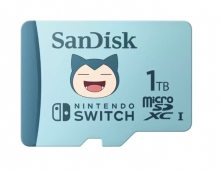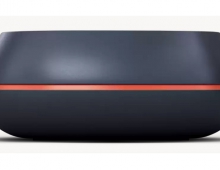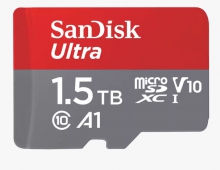
Sandisk Announced Anti-piracy Memory Chip
Sandisk unveiled the a new memory chip, contained on a storage card, which features a built-in security that prevents illegal copying. The TrustedFlash Micro SD memory cards could enable strict controls on intellectual property and at the same time, easy transfering of digital content to be to cell phones, music players, computers and other gadgets.
The TrustedFlash MicroSD memory cards were showcased at the CTIA Wireless IT and Entertainment tradeshow in San Francisco.
The storage cards include embedded digital rights management (DRM) and decryption technology, as well as a subscription manager allowing them to be used for digital music and subscription music services.
The company stated that music producers and movie studios will be able to release premium content on TrustedFlash products. Consumers will be able to download premium content from online digital music services through their mobile phone or PC. They?ll also be able to purchase pre-recorded content on SanDisk?s new grūvi cards, the first product to be released with TrustedFlash.
Today, much of a consumer's digital content is held hostage on a particular kind of device, such as an iPod or a PC, because that is the only way to prevent massive piracy. But with the SanDisk flash memory card, a consumer can move the digital content to another device. If the music company insists the data can only be copied five times, the memory card itself enforces that policy in the new device, be it a cell phone or music player.
 SanDisk has persuaded some industry players to use 'gruvi,' which will be the brand name for TrustedFlash in the entertainment category.
SanDisk has persuaded some industry players to use 'gruvi,' which will be the brand name for TrustedFlash in the entertainment category.
The latest Rolling Stones album is scheduled for release in November in a format that holds four additional albums that can be unlocked after the consumer buys the music. The chip with the first album will sell for $39.95.
Among the music industry providers adopting it are EMI Group and Yahoo Music. Meanwhile, cell phone maker Samsung Mobile Communications, pay-TV company NDS, and portable video software company Packet Video are also supporting SanDisk's technology. Samsung's phones, for instance, can play music on the memory cards.
SanDisk will keep control of TrustedFlash for now, but said that it expects to open up the technology as it matures and gains support from the industry.
In a second phase planned for 2006, it is expected that TrustedFlash will also support mobile commerce applications and enable handsets to perform secure online financial transactions such as credit card payments, mass-transit access and one-time password authentication.
The storage cards include embedded digital rights management (DRM) and decryption technology, as well as a subscription manager allowing them to be used for digital music and subscription music services.
The company stated that music producers and movie studios will be able to release premium content on TrustedFlash products. Consumers will be able to download premium content from online digital music services through their mobile phone or PC. They?ll also be able to purchase pre-recorded content on SanDisk?s new grūvi cards, the first product to be released with TrustedFlash.
Today, much of a consumer's digital content is held hostage on a particular kind of device, such as an iPod or a PC, because that is the only way to prevent massive piracy. But with the SanDisk flash memory card, a consumer can move the digital content to another device. If the music company insists the data can only be copied five times, the memory card itself enforces that policy in the new device, be it a cell phone or music player.
 SanDisk has persuaded some industry players to use 'gruvi,' which will be the brand name for TrustedFlash in the entertainment category.
SanDisk has persuaded some industry players to use 'gruvi,' which will be the brand name for TrustedFlash in the entertainment category.
The latest Rolling Stones album is scheduled for release in November in a format that holds four additional albums that can be unlocked after the consumer buys the music. The chip with the first album will sell for $39.95.
Among the music industry providers adopting it are EMI Group and Yahoo Music. Meanwhile, cell phone maker Samsung Mobile Communications, pay-TV company NDS, and portable video software company Packet Video are also supporting SanDisk's technology. Samsung's phones, for instance, can play music on the memory cards.
SanDisk will keep control of TrustedFlash for now, but said that it expects to open up the technology as it matures and gains support from the industry.
In a second phase planned for 2006, it is expected that TrustedFlash will also support mobile commerce applications and enable handsets to perform secure online financial transactions such as credit card payments, mass-transit access and one-time password authentication.





















